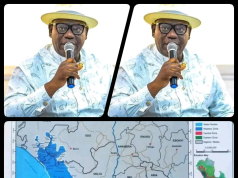In a historic step towards economic self-reliance, the military-led governments of Mali, Niger, and Burkina Faso have announced plans to establish a joint investment bank, fully funded with domestic tax revenues — a move aimed at reducing their dependence on foreign donors and financial institutions.
According to Business Insider, each country will contribute approximately 5% of its annual tax revenues to capitalise the bank. The goal is to build a strong, independent financial institution that will finance infrastructure, industrialisation, agriculture, and other key development priorities across the three nations.
🇲🇱🇳🇪🇧🇫 Why This Matters:
The three countries, all governed by transitional military regimes, have increasingly distanced themselves from former colonial powers and Western influence, particularly France.
They’ve recently exited the Economic Community of West African States (ECOWAS), citing unfair sanctions and political interference.
This proposed investment bank is part of a larger strategy to build regional resilience, strengthen their alliance — the Alliance of Sahel States (AES) — and take control of their development agendas without external conditionalities.
🔍 A Shift in Economic Power?
Analysts say this is not just a financial move, but a political statement. By pooling their resources and focusing on homegrown solutions, the three Sahel countries are signaling a break from dependency and a push for pan-African cooperation based on sovereignty and mutual interests.
Still, questions remain about:
The sustainability of funding the bank with tax revenue amid existing economic challenges.
How transparency and governance will be handled.
The potential reaction of international donors and multilateral agencies.
💬 What’s your take? Can this bold move reshape the economic future of the Sahel?
Drop your thoughts in the comment box 👇
👉 Stay informed. Follow us on www.frontnaija.com





